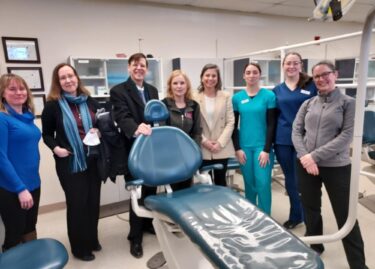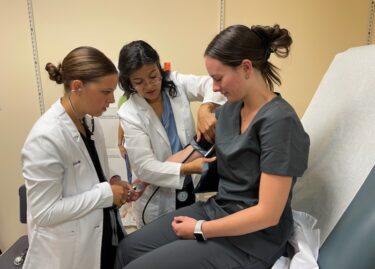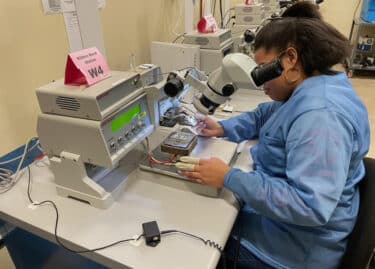New Hampshire’s behavioral healthcare sector has been plagued by workforce shortages for years, making it difficult for those in desperate need of help to find support. The September 2024 “Solving the NH Behavioral Health Workforce Crisis” report (see BHNH.org) shared some sobering statistics. More than 330 positions in NH Community Mental Health Centers were unfilled and the annual job turnover rate was as high as one in three in some parts of the state.
“We are in a real rough spot in terms of behavioral health. The state and many public and private programs have done amazing things to try to address this, but every effort gets tripped up by not having enough workforce to do the actual work of supporting patients,” Mark Belanger, a behavioral health workforce consultant with Dartmouth Health explained.
To help address this, Dartmouth Health, New Hampshire’s Department of Health and Human Services (DHHS), and the Community College System of NH (CCSNH) have collaborated to grow a grassroots peer support workforce. Through a new custom-developed training program for peer support workers, these individuals work alongside licensed clinicians to support individuals in crises, in behavioral healthcare, and throughout their recovery.
Peer support harnesses the power of interacting with someone who understands your experience because they have lived it themselves. One participant in peer support described the experience as “the difference it makes to form real connections with peers versus the distance of being a patient.” Certified Peer Support specialists draw upon their own mental health and/or substance use recovery experiences to create belonging and hope for those they are supporting.
In January 2024, Lakes Region Community College (LRCC), River Valley Community College (RVCC) and White Mountains Community College (WMCC) began offering a Peer Support Specialist Certificate program. Funded through a federal Health Resources and Services Administration (HRSA) grant awarded to Dartmouth Health for rural workforce development, the training curriculum for the Peer Support Specialist Certificate was the result of a collaboration across CCSNH, DHHS and Dartmouth Health. The curriculum integrates recommendations from an advisory group of working peer support specialists in New Hampshire with national core competency guidelines.
The nine-module curriculum is taught in an eLearning format and is accompanied by a weekly virtual discussion group called a “Community of Practice.” The Community of Practice provides an opportunity for participants to apply learning to real world situations. Students who successfully complete all course modules and the Community of Practice sessions are credentialed by New Hampshire as a “Certified Peer Support Specialist.”
The course is subsidized by DHHS and free to attendees. Classes have consistently been filled and there currently is a waiting list to participate. By the end of the first quarter in 2025, an estimated 190 students in seven cohorts are projected to have successfully participated and earned their certification. “That’s quite an accomplishment. Without the collaborative, working relationship with the community colleges, it’s probably something that DHHS would not have been able to accomplish in such a short time,” said Ayla Kendall, Administrator of Peer and Family Support at DHHS.
Prior to the certificate program, New Hampshire did not offer easily accessible training to receive the Certified Peer Support designation required by state contracts. The waitlist to participate in the new programs through LRCC, RVCC and WMCC is testimony that demand is there both to become a peer support specialist and to employ specialists. “We are creating a stackable credential that can launch a career in a field where we have a long and persistent workforce crisis, particularly in the rural areas in the Lakes Region and North Country,” explained Amy Burke, Workforce Development Coordinator at LRCC.
According to Mark Belanger, community colleges play a crucial role in training and retaining behavioral health staff. “People who train locally tend to stay local and this is the seed of the thought that led to migration of peer training into the community college system.” The HRSA funding focuses on NH’s six rural counties where LRCC, RVCC and WMCC are piloting the Certified Peer Support program. The online programs are open to participants statewide.
DHHS funding to offer the Certified Peer Support Specialist program free to participants runs through March 2025. The Department is exploring ways to secure additional funding to meet steady demand for the programs and growing waitlists for participation.



